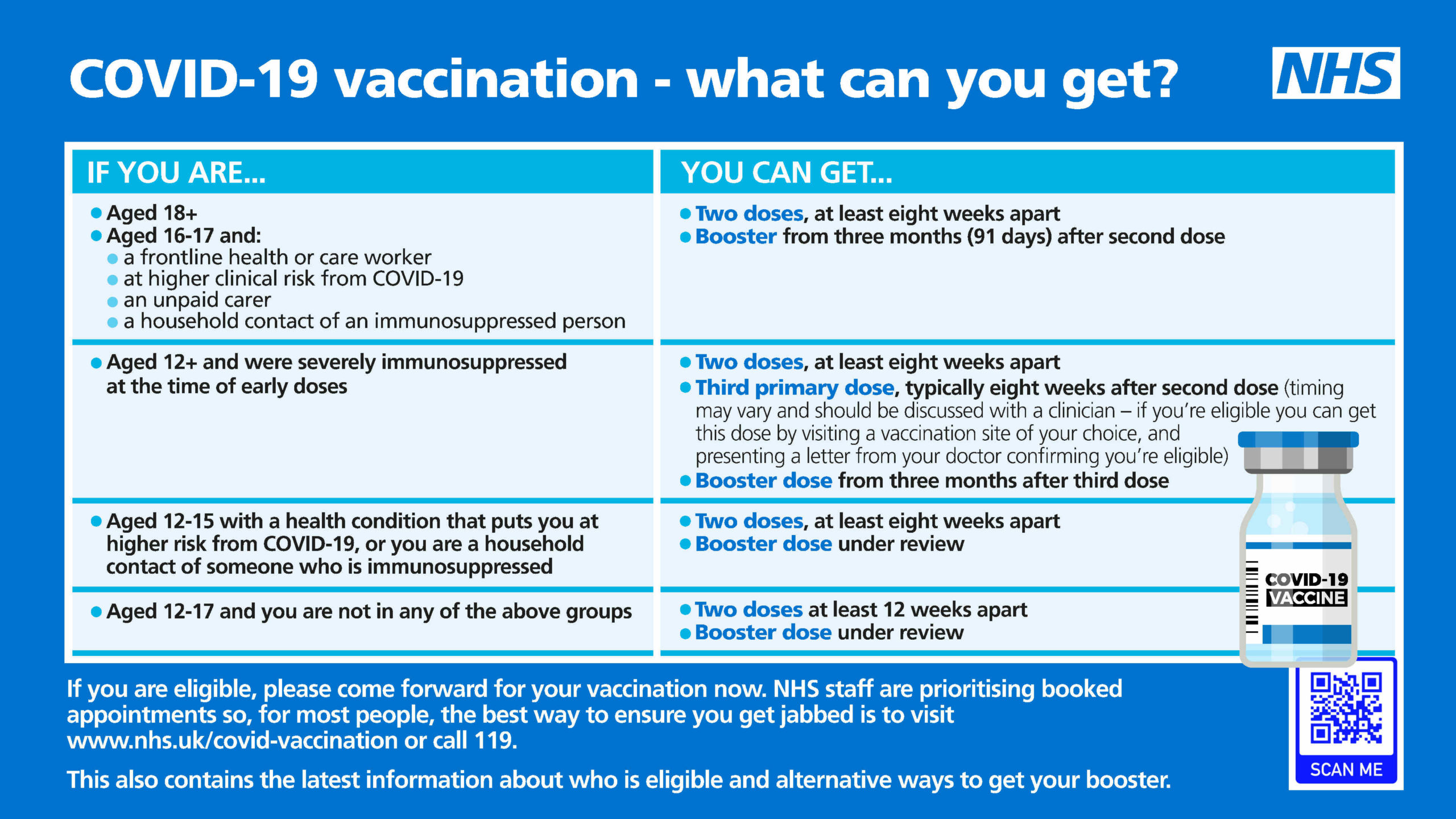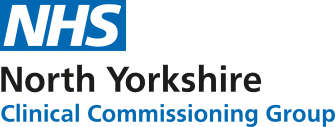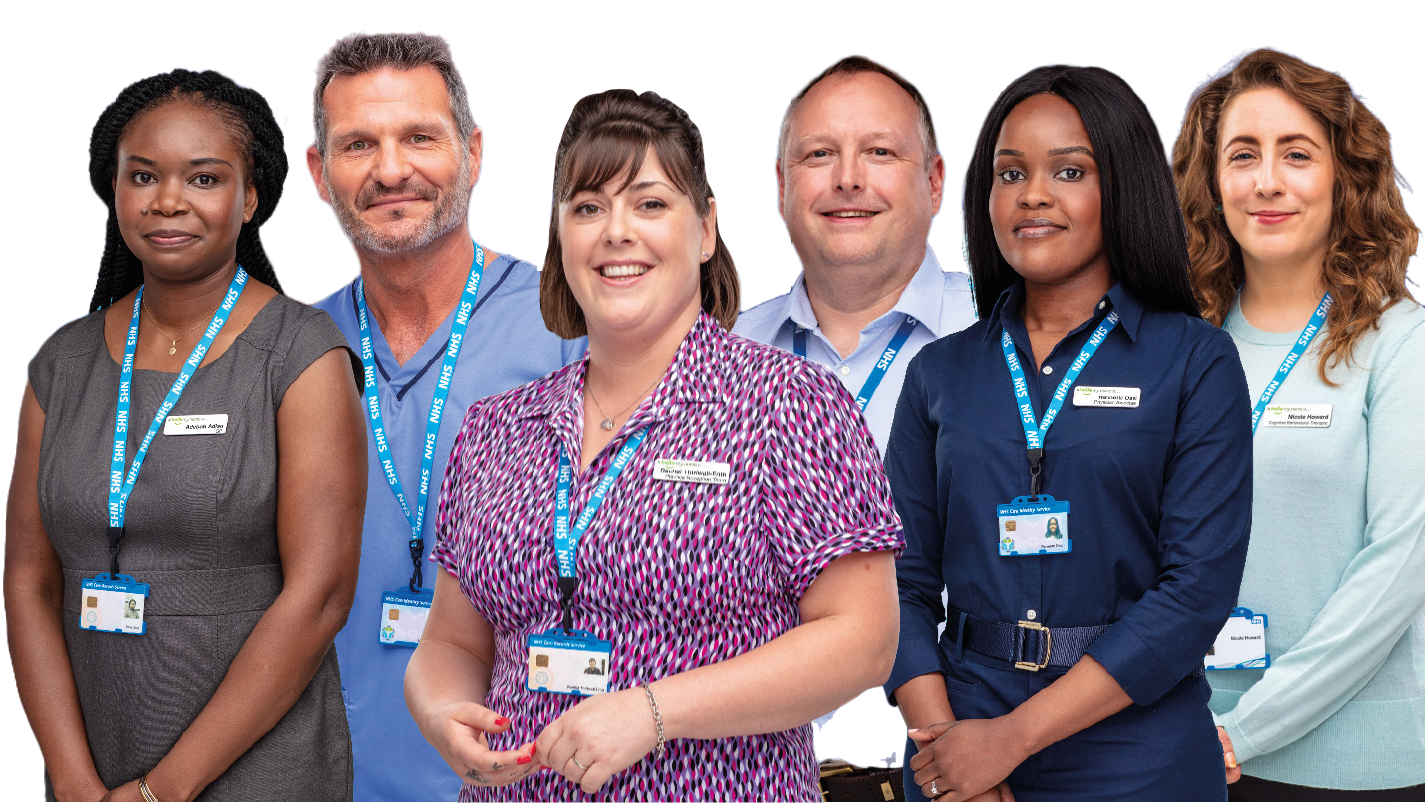COVID vaccinations: questions and answers about accessing a vaccine in North Yorkshire
The coronavirus (COVID-19) vaccines are safe and effective. They give you the best protection against COVID-19.
Real-world data on the effectiveness of vaccines is regularly updated and published by the UK Health Security Agency and is available, here.
You can find out more about getting your COVID booster jabs in North Yorkshire, here.
There's more information in this BBC explainer.

How do I arrange my coronavirus vaccination?
First, second and booster doses
Other Frequently Asked Questions
Where will I get vaccinated?
There are a number of sites across North Yorkshire offering vaccinations. You can choose the location most convenient to you when you book an appointment, or you may choose to access a vaccination at one of the pop up or walk in centres which are now offering vaccines.
Is help to travel available to attend my vaccination appointment?
People should access their vaccination appointment in the same way they would access any other medical appointment using existing services. In addition, if needed, there may be volunteer drivers available, charities are offering their support and patients who meet the criteria for patient transport for medical appointments may also be able to use that service.
I am housebound; can I be vaccinated at home?
We strongly encourage everyone who can to attend a vaccination site when invited. We are working through the best ways to bring the vaccine to those who are unable to leave their home as a healthcare system. How this will best be achieved is shaped by the characteristics of the vaccines available.
Is the vaccine safe?
So far, millions of people have been given a COVID-19 vaccine and reports of serious side effects, such as allergic reactions or clotting problems, have been very rare.
- GOV.UK: Pfizer/BioNTech vaccine for COVID-19 approved by MHRA
- GOV.UK: Oxford/AstraZeneca vaccine for COVID-19 approved by MHRA
- GOV.UK: Moderna vaccine for COVID-19 approved by MHRA
- GOV.UK: Janssen vaccine for COVID-19 approved by MHRA
You can read more about why vaccines are safe and important, including how they work and what they contain.
Can I choose what vaccine I receive?
You cannot usually choose which vaccine you have. You will only be offered a specific vaccine if you're either:
- pregnant
- aged under 40 and do not have a health condition that increases your risk of getting seriously ill from COVID-19
If this applies to you, you'll only be shown appointments for the Pfizer/BioNTech or Moderna vaccine when you book your COVID-19 vaccination appointments online.
If you book through your GP surgery, tell them if you're pregnant or under 40.
You should have the same vaccine for both doses, unless you had serious side effects (such as a serious allergic reaction) after your first dose.
Are the vaccination sites safe?
Each vaccination site has been carefully selected against a set of comprehensive criteria which ensure that social distancing can be maintained the site is easy to access and the one way systems can be maintained where needed. We have only selected sites where we are able to comply with government guidance to ensure that each vaccination is administered safely.
Videos about the vaccination programme
In English ...
In English ...
In Malay ...
In Sylheti ...
In Mandarin ...
In Polish ...
In Arabic ...
In Bengali ...
In Punjabi ...
In Gujarati ...
In Hindi ...
In Urdu ...
In Igbo ...
In Pashto ...
In Romanian ...
In Pidgin English (Nigerian) ...
In Portuguese ...
In Yoruba ...
In Kurdish ...
These videos have been produced by the Humber Coast and Vale Health and Care Partnership. The full suite is available, here. There's further guidance from local GPs, including messages in Bengali, Polish, Slokav, Urdu and Pashto, as well as in British Sign Language (BSL) from the West Yorkshire and Harrogate Health and Care Partnership.


